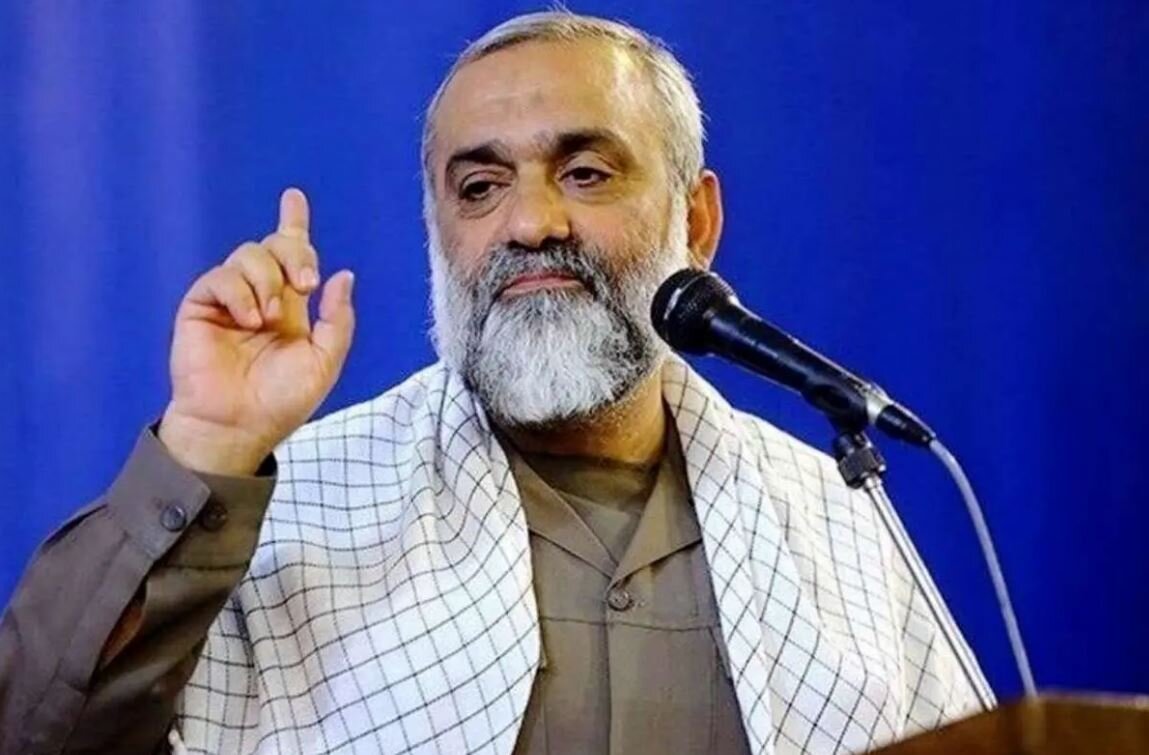No American will be safe if senior clerics are threatened: IRGC commander

TEHRAN – The deputy commander for coordination in the Islamic Revolution Guard Corps (IRGC) warns any attempt to harm Iran’s senior clerics would provoke a harsh regional backlash against U.S. interests.
During a speech on Saturday, Brigadier General Mohammad Reza Naqdi issued a warning to the United States and Israel over recent threats against the Leader of the Islamic Revolution Ayatollah Seyyed Ali Khamenei and other high-ranking Shi’a religious authorities, denouncing the statements as dangerous, unlawful, and tantamount to state-sponsored terrorism.
“Even imagining aggression against the Shi’a religious authorities will place every single American military and civilian official in the region at risk,” Naqdi said.
Referring directly to Trump’s latest remarks, he added: “Because of his foolishness, Trump failed to grasp the meaning of Grand Ayatollah al-Sistani’s message, and continues to repeat his idiotic threats. Let me explain the message clearly: any act of aggression—whether successful or not—against any Shi’a Marja will ensure that no American agent leaves the region alive.”
He further warned that mere repetition of such rhetoric, even without action, would not go unanswered.
The statement comes in the wake of provocative threats made by Israeli War Minister Israel Katz during an interview with Israeli media on June 26, in which he directly threatened Ayatollah Khamenei and revealed that the Israeli regime had drawn up assassination plots against the Iranian Leader. His remarks followed earlier comments by Donald Trump, who on June 18 described Ayatollah Khamenei as an “easy target,” saying, “we are not going to take him out—at least not for now.” Trump repeated the same rhetoric on Friday, claiming to have personally prevented either the Israeli regime or U.S. armed forces from targeting Iran’s Leader.
The threats have triggered widespread condemnation in Tehran. Iran’s Foreign Minister Abbas Araghchi urged Trump to adopt a respectful tone if he is genuinely interested in engaging with Iran diplomatically.
“If President Trump is genuine about wanting a deal, he should put aside the disrespectful and unacceptable tone towards Iran’s Supreme Leader, Grand Ayatollah Khamenei,” Araghchi posted on social media.
He added: “The complexity and tenacity of Iranians is famously reflected in our magnificent carpets, which are the product of endless hours of patience and precision. But as a nation, our principles are simple: we know our worth, we value our independence, and we never allow others to define our destiny. The Great and Powerful Iranian People—who proved to the world that the Israeli regime had no choice but to run to 'Daddy' to avoid being flattened by our missiles—do not tolerate threats or insults. If illusions fuel further miscalculations, Iran will not hesitate to unveil its real capabilities. This would end any false assumptions about the power of Iran. Goodwill invites goodwill; respect begets respect.”
Iran’s Permanent Representative to the United Nations, Ambassador Amir Saeid Iravani, also formally lodged a complaint with the UN, calling on the international community to condemn the threats and hold those responsible to account.
In a letter sent Friday to UN Secretary-General António Guterres, the President of the UN General Assembly, and the Security Council, Iravani described the remarks by Trump and Katz as a “clear and repeated incitement to assassination,” and called them “unlawful, irresponsible, and terrorist in nature.”
“These officials have openly and repeatedly threatened the Leader of the Islamic Revolution with assassination,” the letter stated. “Such reckless and deliberate threats constitute a flagrant violation of the Charter of the United Nations, particularly Article 2(4), which prohibits the threat or use of force against the territorial integrity or political independence of any state.”
The ambassador warned that such threats risk normalizing political assassination as a legitimate tool of foreign policy, thereby undermining the foundations of the international legal order.
“Iran, while reserving its inherent right to self-defense under Article 51 of the UN Charter, urges the United Nations, particularly the Security Council, to condemn in the strongest possible terms these assassination threats,” the letter read.
Leave a Comment